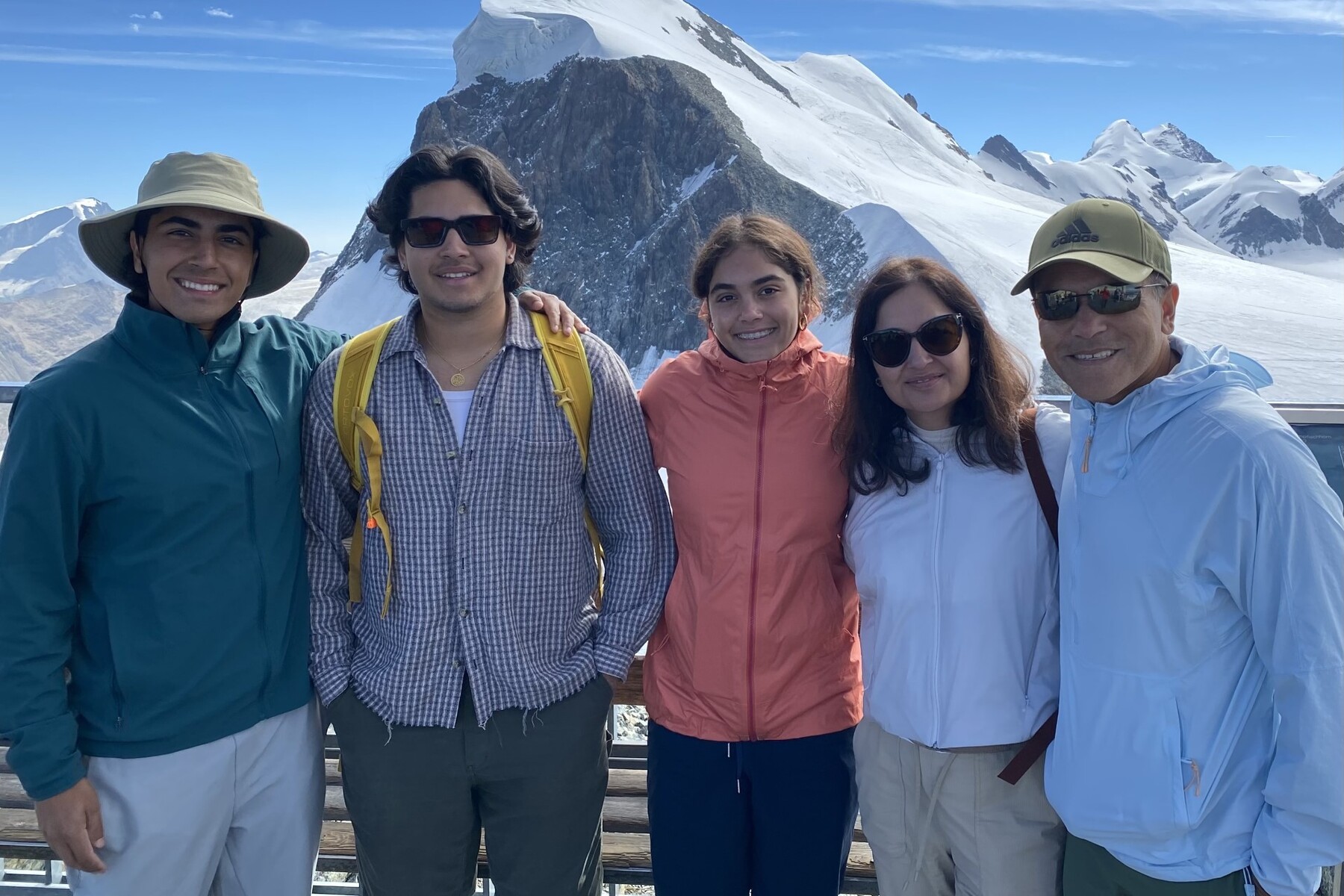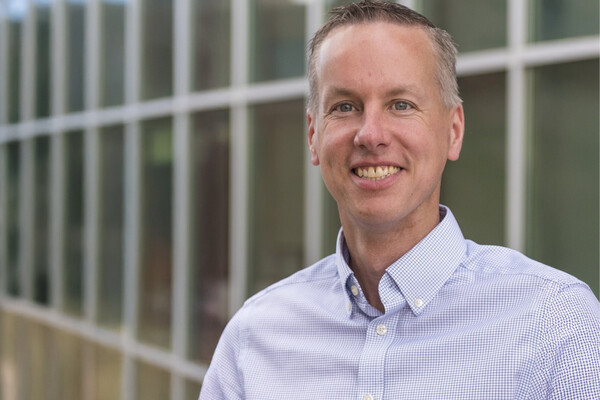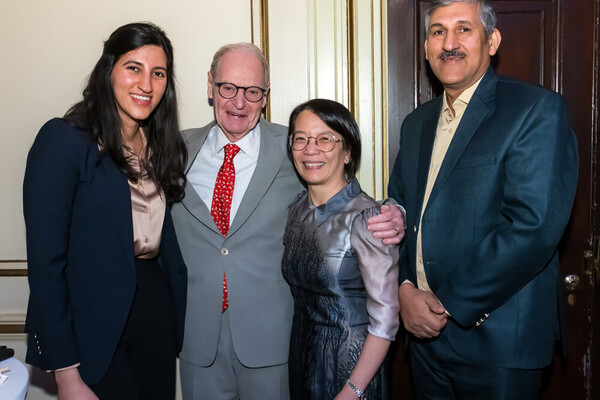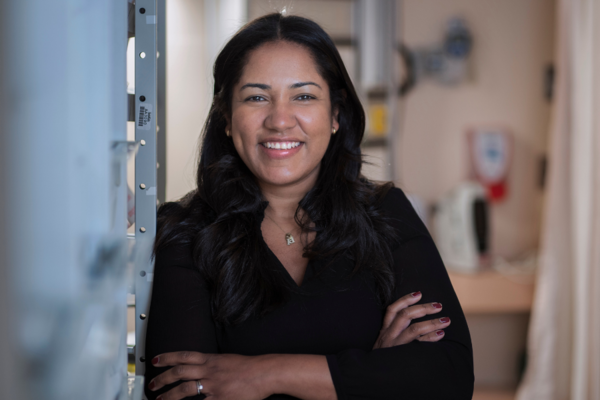Main Second Level Navigation
Feb 14, 2024
Spreading the Temerty Medicine love: Deepa Kumar honours husband Imran Rasul with endowed gift supporting MD students
Alumni Profile, Alumni, Faculty & Staff, Giving

supplied
Imran Rasul (MD ’96, PGME Gastroenterology ’01) (L) and Deepa Kumar (MD ’97, PGME Surgery ’02) (R) met during their undergrad at U of T.



